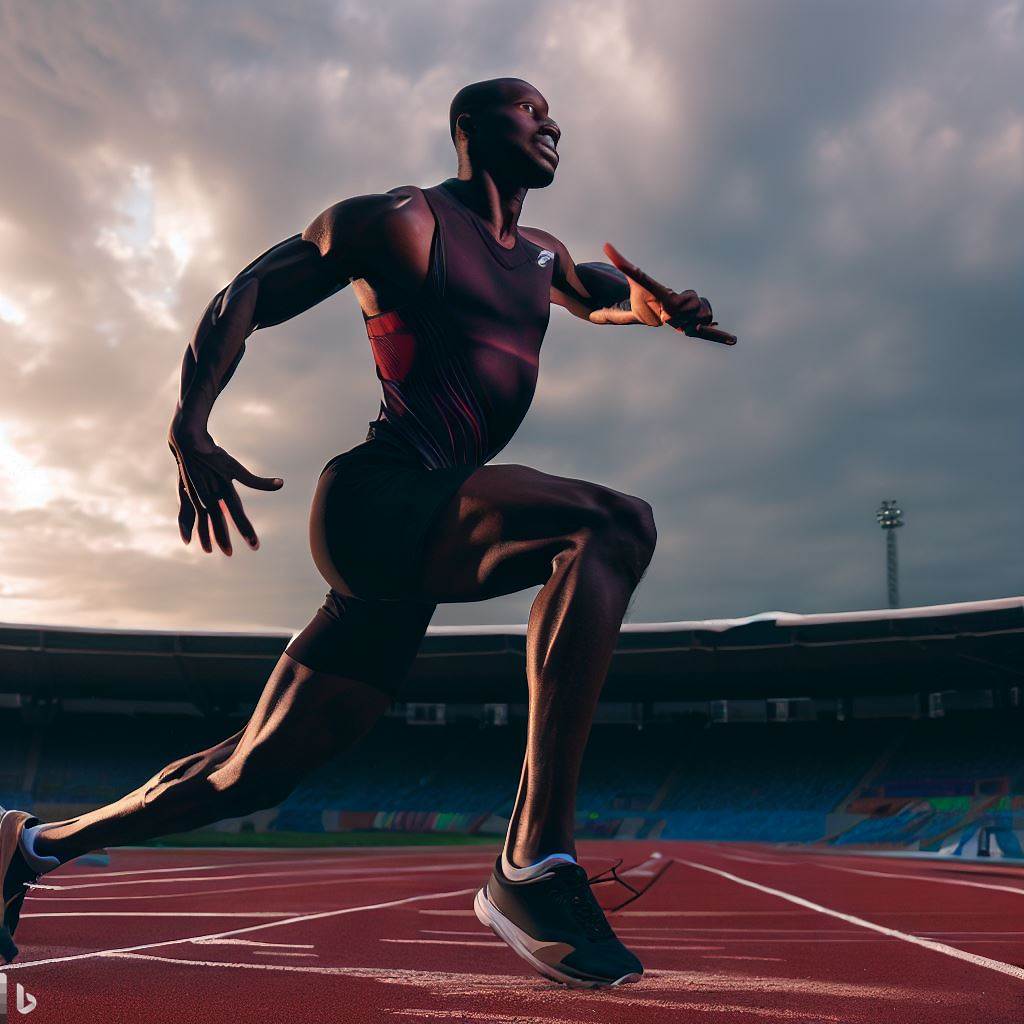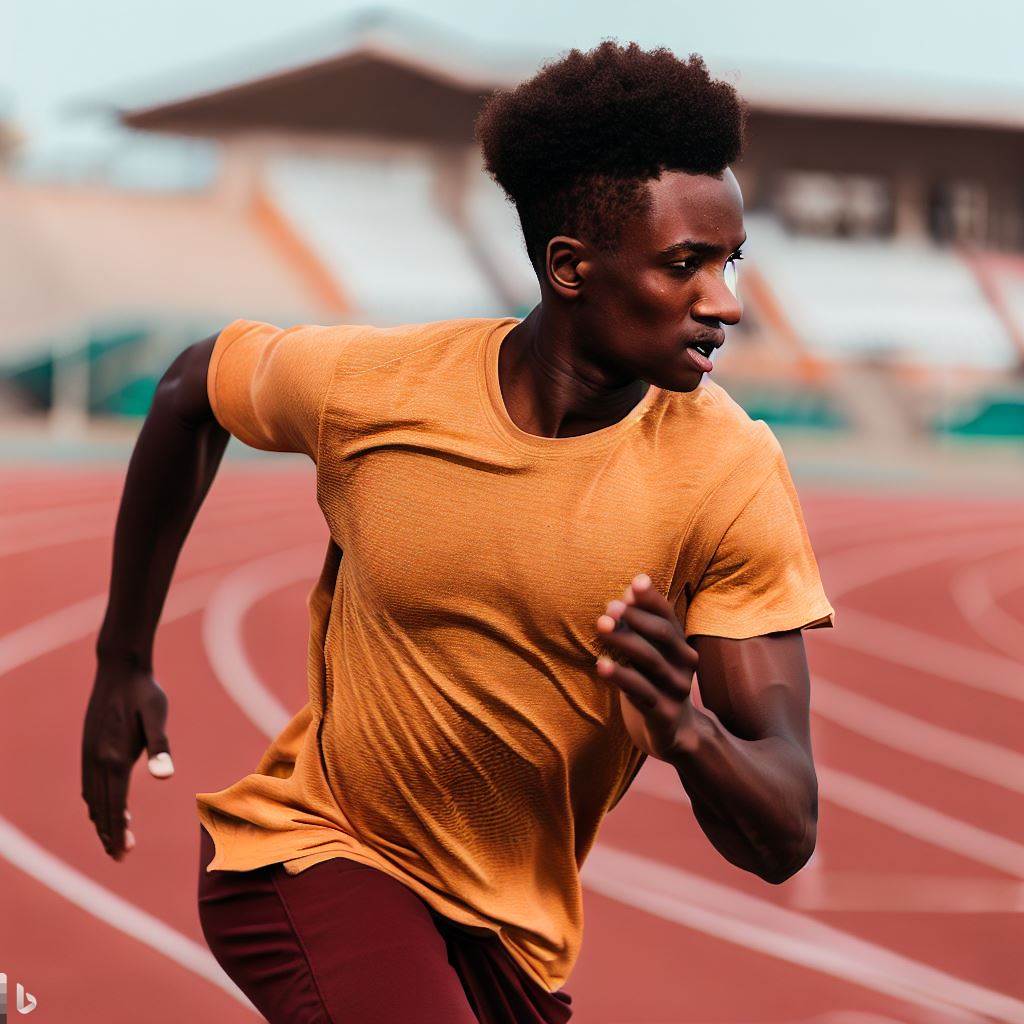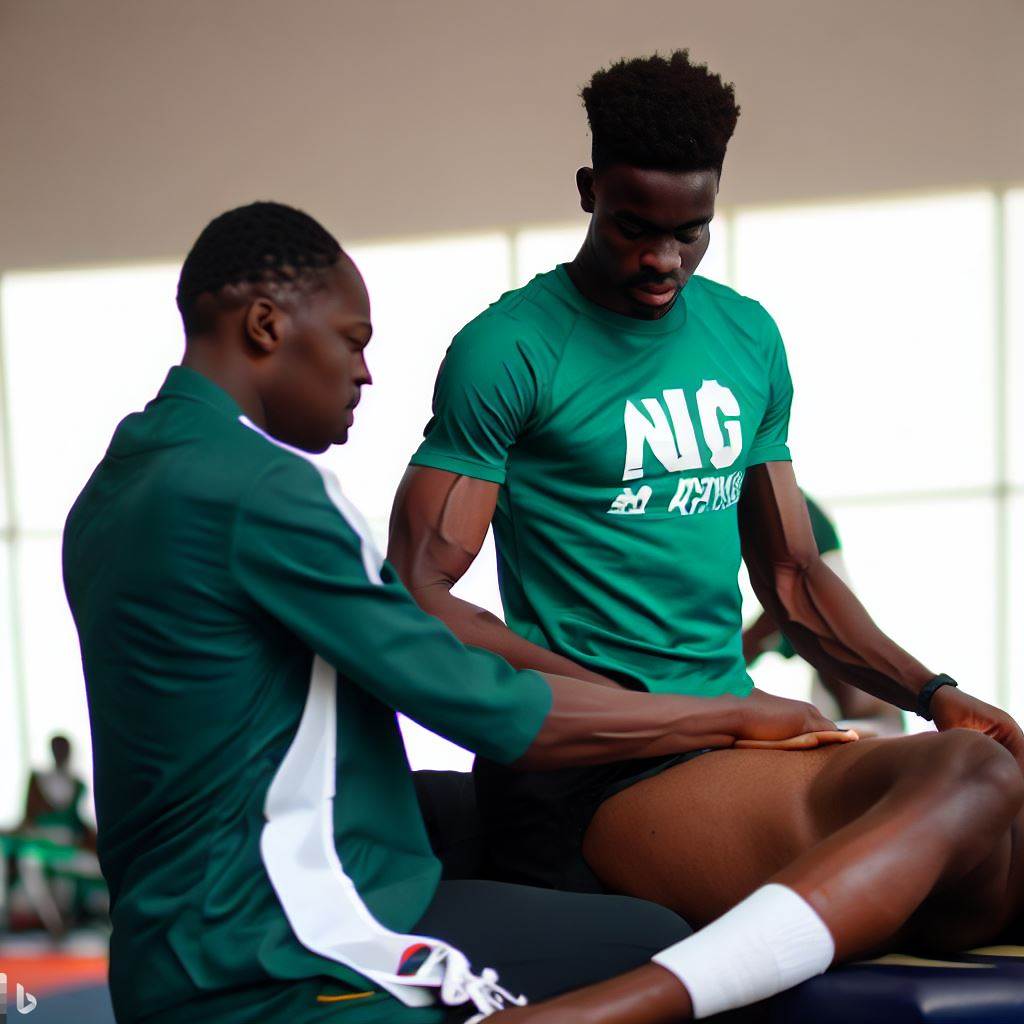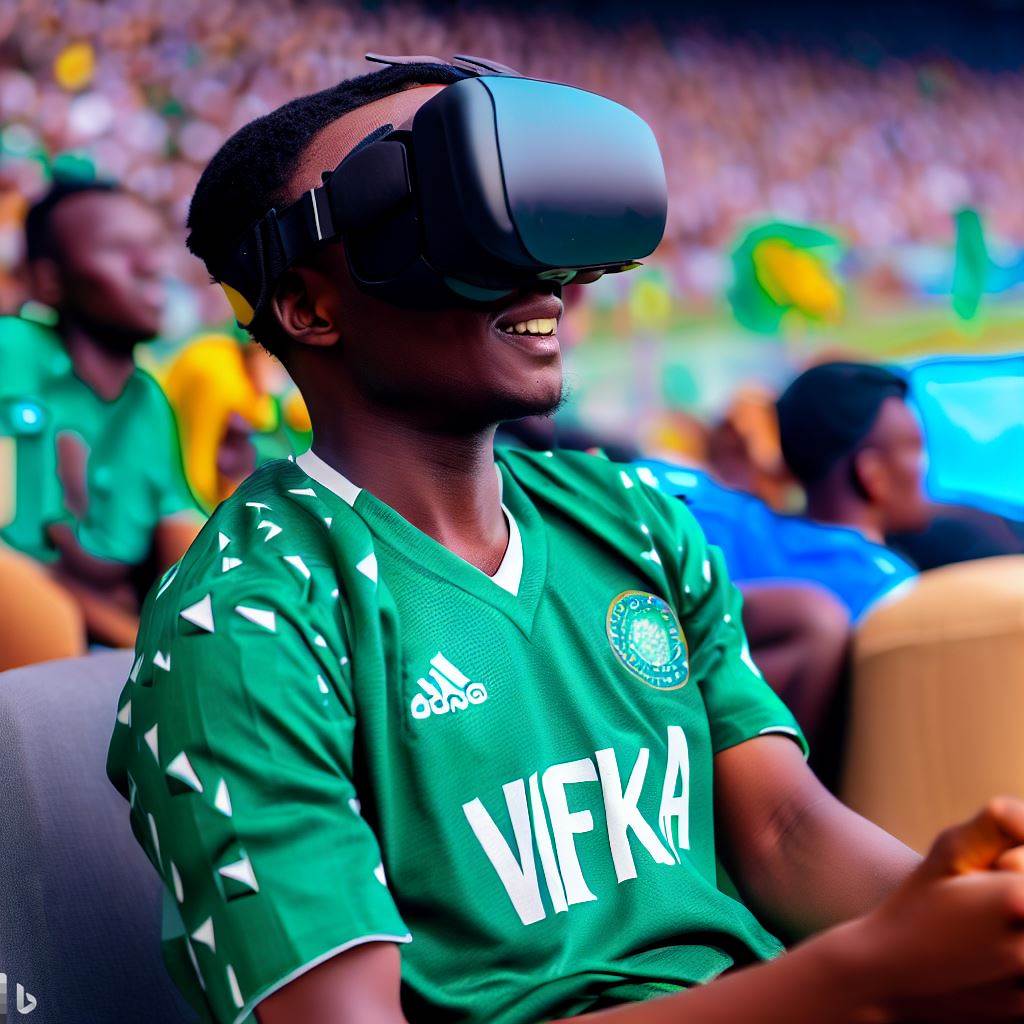Introduction
Overview of Nigeria’s athletics industry
Nigeria’s athletics industry, known for producing world-class athletes like Blessing Okagbare, Chioma Ajunwa, and Sunday Bada, has been facing challenges in recent years.
Importance of the industry
The athletics industry is essential for Nigeria’s international reputation and sports tourism, as well as the physical and mental well-being of its citizens.
Purpose of the blog post
This blog post aims to analyze Nigeria’s athletics industry’s future prospects by examining current challenges and identifying potential solutions.
Read: Exploring Nigeria’s Sports Talent Development Programs
Current status of Nigeria’s athletics industry
Athletics as a sport is one of the most popular and widely followed sports in Nigeria, with notable athletes such as Blessing Okagbare, Chioma Ajunwa, Mary Onyali, and a host of others who have represented Nigeria at international competitions and made the country proud.
Challenges facing the industry
Despite the immense potential of the athletics industry in Nigeria, there are myriad challenges that require addressing.
One of the predominant issues is the inadequate infrastructure, with most of the existing facilities poorly maintained or being insufficient for the number of athletes in the country.
Inadequate funding is also a major challenge, with inadequate sponsorship for athletes and inadequate investment in the industry making it difficult for Nigerian athletes to compete on a global scale.
Achievements so far
Nigeria’s athletics industry has seen significant progress over the years in terms of achievements.
Nigerian athletes have won several gold medals at international competitions such as the Olympics, Commonwealth Games, and African Games.
Furthermore, the industry has also witnessed breakthrough performances in various sporting events, highlighting the potential of the industry.
Comparison with other countries
Compared with other African countries, Nigeria is one of the leading countries in the athletics industry, with its athletes ranking high on the global stage.
However, there are several other countries such as Kenya, Ethiopia, and South Africa, that far excel Nigeria in the industry due to better investment in the industry, infrastructure, and governmental policies.
In essence, while Nigeria’s athletics industry has witnessed some successes and breakthroughs, there is still immense untapped potential.
More needs to be done to tackle the infrastructure, funding, sponsorship, and management challenges that hinder the industry’s full development.
Going forward, stakeholders and policymakers must work together to address these challenges if Nigeria is to reach its full potential in the athletics industry.
Read: The Rise of Nigerian Athletes on the Global Stage
Government’s efforts to develop the industry
The Nigerian government has recognized the potential of the athletics industry and has made significant efforts towards its development.
These efforts can be seen in the areas of investment in sports facilities, establishment of sports academies, and funding of athletes and competitions.
Investment in sports facilities
The government has invested heavily in the construction and renovation of sports facilities across the country.
These facilities include stadiums, tracks, and training centers. Examples of these facilities include the National Stadium in Lagos and the Moshood Abiola National Stadium in Abuja.
These investments have not only provided world-class facilities for athletes to train and compete in, but have also created employment opportunities for locals who are involved in the maintenance and management of these facilities.
Establishment of sports academies
The government has also taken steps to establish sports academies that focus on the development of young athletes.
These academies provide world-class training and coaching to young athletes, helping them to improve their skills and prepare for international competitions.
One such academy is the National Institute for Sports in Lagos, which provides training and education for coaches and athletes in various sports including athletics.
The academy also works closely with schools to identify and train talented young students in various sports.
Funding of athletes and competitions
The government has also provided funding for athletes and competitions, through initiatives such as the National Sports Commission and the Ministry of Youth and Sports Development.
These organizations provide financial support to athletes, helping them to compete in national and international competitions.
Additionally, the government has sponsored various competitions, such as the National Sports Festival, the All-Nigeria Athletics Championships, and the African Athletics Championships.
These competitions not only provide a platform for athletes to showcase their talent, but also help to boost the profile of the industry.
The efforts made by the Nigerian government towards the development of the athletics industry are commendable.
The investment in sports facilities, establishment of sports academies, and funding of athletes and competitions have contributed significantly to the growth of the industry.
However, there is still more that can be done to ensure the industry reaches its full potential, such as providing more funding for athletes and competitions, and providing greater support and incentives for private investors to get involved.
Read: Understanding the Role of Coaches in Nigerian Sports
Private Sector Involvement in Nigeria’s Athletic Industry
The athletic industry in Nigeria has grown considerably in recent years, with athletes like Blessing Okagbare and Ese Brume making waves in international competitions.
However, there is still the need for more private sector involvement to ensure sustained growth and development of the industry in the country.
Sponsorship Deals
One way that private sector involvement can be increased in Nigeria’s athletic industry is through sponsorship deals.
Companies can opt to sponsor individual athletes or events, providing financial and material support that helps athletes to train and compete at the highest level.
This type of sponsorship is necessary because most of Nigeria’s athletes come from low-income backgrounds and rely on government funding or support from their families.
With sponsorship deals, athletes can access better training facilities, equipment, and nutrition, which are necessary for their development.
Moreover, sponsorship deals can help companies to increase their brand visibility and connect with audiences.
If an athlete sponsored by a company wins a medal at an international competition, the company can use this achievement to create buzz around their brand and products, which could result in increased sales.
Partnerships with Sports Organizations
Another way that private sector involvement can be increased in Nigeria’s athletic industry is through partnerships with sports organizations.
Companies can collaborate with sports federations or associations to create programs that support the development of local athletes.
Through these partnerships, companies can provide funding for training camps, competitions, and talent identification initiatives.
They can also provide mentorship and coaching support for young athletes, helping them to develop necessary skills for success in their respective sports.
Additionally, partnerships with sports organizations can provide companies with access to valuable networks and contacts in the industry.
This could lead to the discovery of new talents or collaboration opportunities with other companies in related industries.
Investments in Athletes
Finally, private sector involvement in Nigeria’s athletic industry can be increased through investments in athletes.
This includes investing in their education and career development, as well as providing them with financial support.
Companies can provide financial support, enabling athletes to focus on training and competition without financial worries.
Investments in athletes create a talent pipeline, sustaining Nigeria’s athletic industry growth and development.
With proper investments, more athletes can compete at the highest level, leading to more medals for Nigeria.
Companies can provide financial and material support through sponsorship deals, partnerships, and investments in athletes.
Increased private sector involvement helps develop local talents, enabling Nigeria to excel in international athletics.
Private sector involvement benefits companies’ brand visibility and enhances the Nigerian sporting industry.

Future Prospects for Nigeria’s Athletics Industry
Potential for growth and development
Nigeria has always been blessed with athletic talent, and there are ample opportunities to capitalize on this innate ability.
The nation has produced world-renowned stars such as Blessing Okagbare and Chioma Ajunwa, who both won Olympic medals.
With increased investment in infrastructure and training facilities, the athletics industry in Nigeria has the potential to surpass those of other successful nations.
Importance of talent identification and development
Talent identification is essential for the success and development of any athletics industry.
Coaches must be able to identify raw talent at an early age and nurture it through years of careful training and specialized education.
Developing the physical, technical, and psychological aspects of an athlete requires time and resources.
As such, talent identification programs should be implemented at the national level to identify untapped resources.
Need for continuous investment
Athletics is a highly competitive and constantly evolving field, and it requires continuous investment to guarantee its success.
Funding is needed for athlete development, facility upgrades, and administrative support, among other things.
Continuous investment allows Nigeria’s athletics industry to attract the best talent, retain them, and produce consistent results in local and international competitions.
Collaborations with foreign institutions
Collaborations with foreign institutions provide Nigerian athletes with the opportunity to learn and grow, access state-of-the-art facilities, and train with some of the best coaches in the world.
These partnerships can start with intervarsity athletics exchange programs, as well as training and competition exchanges with other countries.
Collaborations help Nigeria compete globally and increase their visibility on the global athletics scene.
Increased media coverage
An increase in media coverage can bring much-needed attention to Nigerian athletics and boost the industry’s popularity.
Television, radio, and online streaming sites can all be utilized to improve coverage. Increased media coverage offers a perfect platform to showcase events, athletes, and athletic facilities and build a fan base.
It also provides the opportunity to raise awareness about the importance of athletics and the impact it has on Nigeria’s society.
Athlete welfare
The welfare of athletes is paramount to the long-term success of the athletics industry.
Well-being encompasses factors such as nutrition, health care, financial support, and safety measures.
Nigeria’s athletics industry must provide a supportive environment that caters to the well-being of athletes, leading to overall improved performance and results.
Strengthening grassroots and community-level programs
Grassroots programs and community initiatives are powerful tools for the growth and development of Nigeria’s athletics industry.
Young athletes gain exposure to top-level training, equipment, and resources through these programs, supporting their early growth.
Community-level programs foster a nurturing, safe environment for beginners, promoting basic athletics skills, healthy lifestyles, and physical activity.
Improved sports governance and regulation
The Nigerian government must ensure transparent and effective sports governance and regulations to drive the growth of the athletics industry.
Clear governance structures aid in the management of resources, reduction of corruption, and the promotion of transparency for all stakeholders.
Effective regulations assist in safeguarding athlete welfare, promoting fair competition, and handling disputes.
In conclusion, with the right investments, infrastructure, and support, the prospects for Nigeria’s athletics industry are bright.
Winning Olympic medals and breaking world records require continuous investment in talent identification, development, infrastructure, and effective regulations.
Finally, collaboration with foreign institutions and increased media coverage can accelerate the growth of the industry and provide much-needed attention to Nigeria’s athletics scene.
Read: Gender Equality in Nigerian Sports Professions
Conclusion
Recap of key points
- Nigeria has a rich history in athletics, producing many successful athletes.
- However, the industry has faced challenges such as poor infrastructure and inadequate funding.
- The recent successes of Nigerian athletes suggest potential for growth in the industry.
- Investment in infrastructure, training, and development is necessary for sustained success.
Outlook for the future of Nigeria’s athletics industry
The government and stakeholders’ ability to address challenges will determine the future of Nigeria’s athletics industry.
It is essential to invest in infrastructure and offer better incentives for athletes. With these, it’s possible for Nigeria to become one of the top nations in athletics on the global stage.
Call to action
The government and private sector stakeholders in Nigeria must collaborate to create sustainable policies and initiatives for the sports industry.
They should invest more in grassroots and youth programs, offer better incentives for athletes, and encourage more participation to raise talented individuals representing Nigeria globally.




